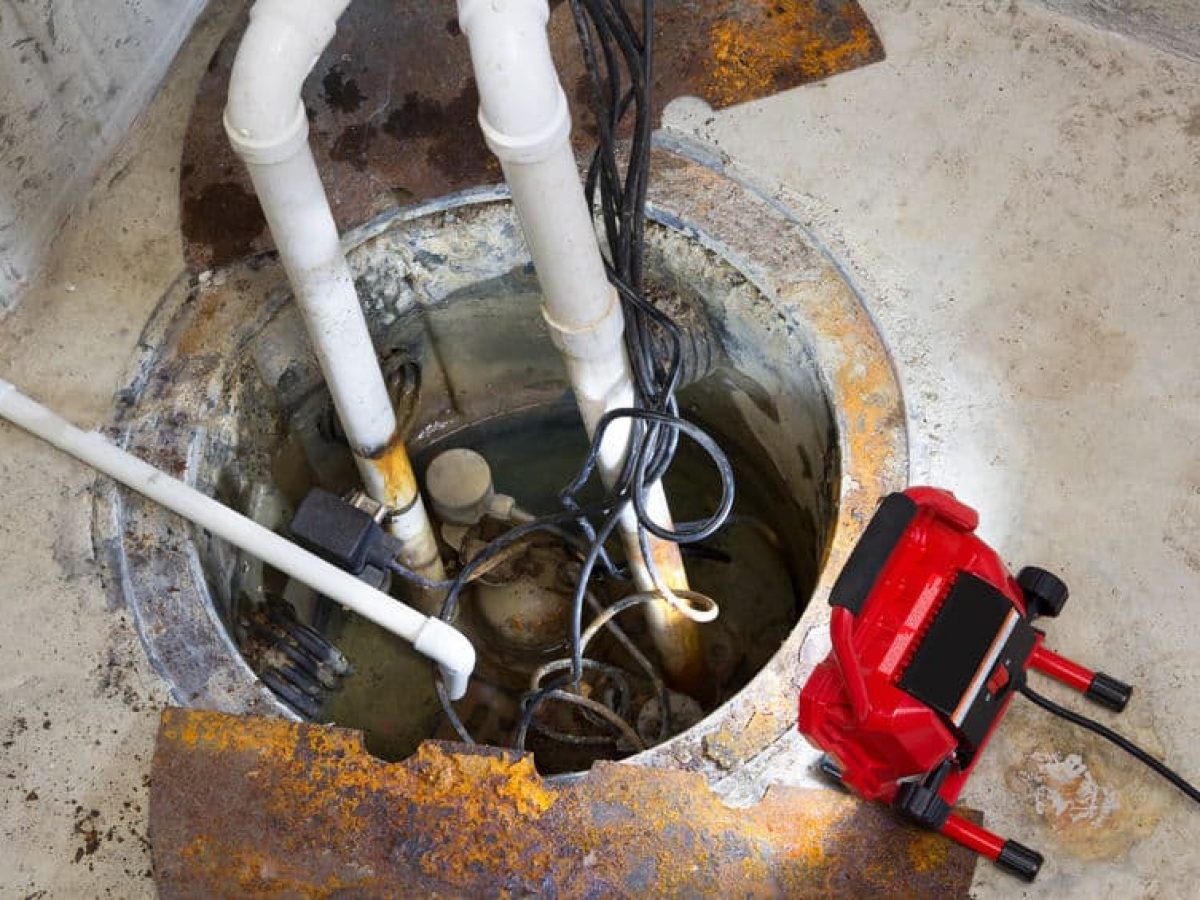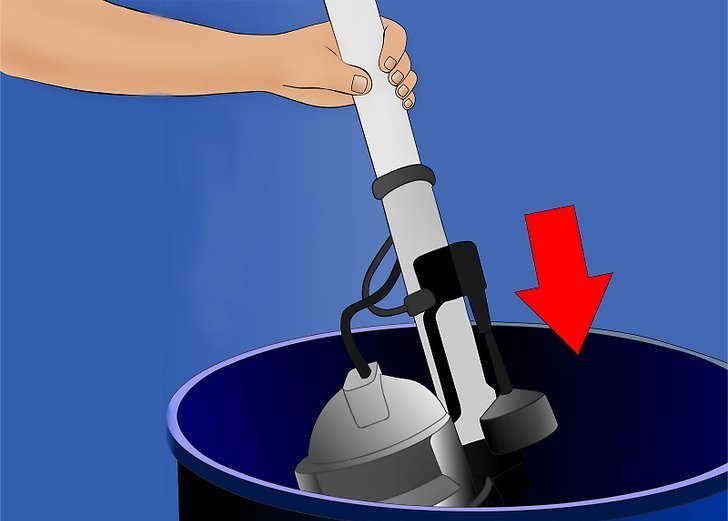Simple Instructions for Maintaining a Sump Pump
Simple Instructions for Maintaining a Sump Pump
Blog Article
Listed here in the next paragraphs you can get a lot of exceptional insight around Keep Your Sump Pump Clean, It'll Keep You Dry.

Sump pumps are essential elements in many homes, especially in areas susceptible to flooding or extreme dampness. They aid protect against water damages by successfully getting rid of excess water from cellars or crawl spaces. Nevertheless, like any other home appliance, sump pumps need regular maintenance to guarantee they operate successfully when needed the most. Cleansing your sump pump is a crucial part of its upkeep, and understanding just how to do it appropriately can save you from pricey repair services and potential calamities.
Introduction
Keeping a tidy sump pump is essential for its appropriate performance and durability. Ignoring this necessary job can lead to clogs, breakdowns, and eventually, water damage to your building. As a result, learning just how to clean up a sump pump is essential for property owners who count on these gadgets to keep their basements dry and secured.
Comprehending the Sump Pump
Prior to diving right into the cleaning process, it's essential to have a standard understanding of how a sump pump functions. Generally set up in a pit or container listed below the cellar floor, a sump pump includes a number of vital elements, including a pump, a float switch, and a discharge pipeline. When water builds up in the pit, the float button activates the pump, which then pumps the water out with the discharge pipeline, away from the structure's foundation.
Signs of a Dirty Sump Pump
Recognizing when your sump pump needs cleaning is critical for protecting against prospective malfunctions. Some usual signs that show a dirty sump pump consist of strange noises throughout operation, minimized water circulation, and visible particles in the pit. If you see any of these signs, it's essential to clean your sump pump immediately to stay clear of any further concerns.
Getting ready for Cleansing
Before you start cleaning your sump pump, it's necessary to take some safety and security precautions. Start by turning off the power to the pump to stay clear of any electrical crashes. Additionally, use proper safety gear, such as gloves and safety glasses, to secure on your own from dust, particles, and potential pathogens.
Step-by-step Guide to Cleaning a Sump Pump
Shutting Off the Power
Begin by separating the power supply to the sump pump to stop any type of crashes while cleansing.
Getting Rid Of Debris and Dirt
Utilize a container or a scoop to get rid of any type of visible particles, dust, or sediment from the sump pit. Dispose of the debris properly to stop it from blocking the pump or the discharge pipeline.
Cleaning the Pump and Drift Switch Over
When the pit is free from debris, carefully remove the pump from the pit. Evaluate the pump and the float switch for any type of indicators of damages or wear. Use a soft brush or fabric to cleanse the surfaces and remove any type of built up grime.
Flushing the System
After cleaning up the pump and float button, purge the sump pit with clean water to eliminate any staying dust or debris. This will certainly aid make certain that the pump operates smoothly and efficiently.
Looking For Correct Performance
Prior to re-installing the pump, perform a fast test to guarantee that the float switch triggers the pump properly. Put some water into the sump pit and observe the pump's procedure. If everything is functioning properly, you can reassemble the pump and reconnect the power supply.
Upkeep Tips to Keep Your Sump Pump Clean
Along with regular cleaning, there are several upkeep suggestions you can comply with to keep your sump pump in optimum condition:
Verdict
Cleaning your sump pump is a vital aspect of its maintenance and makes sure that it runs efficiently when you need it one of the most. By following the steps outlined in this guide and incorporating regular maintenance into your routine, you can expand the life-span of your sump pump and secure your home from water damage.
6 STEPS ON HOW TO CLEAN A SUMP PUMP PROPERLY
UNDERSTANDING SUMP PUMPS
Your sump pump plays a crucial role in protecting your home by managing and removing excess water. It primarily functions as a “shield”, guarding your basement against the damaging effects of water accumulation. The pump is housed in a sump pit in the lowest part of your basement, and its job is to pump out any water that collects there.
During heavy rainfalls or when snow melts rapidly, water can infiltrate your basement, posing potential risks like flooding, structural damage, and harmful mold growth. Here, the sump pump springs into action, pumping out the intruding water and directing it away from your home.
SAFETY FIRST
Before cleaning, remember to prioritize safety. Disconnect the sump pump from the power source to prevent any accidental electric shocks. Also, wear sturdy gloves to protect your hands from any sharp or dirty components within the pump.
REMOVE THE SUMP PUMP
After ensuring your safety, the next step is to remove the sump pump from its pit. Doing this might require careful maneuvering as you don’t want to damage any pump components. Once removed, clean the sump pit to remove any accumulated debris or sludge.
INSPECT THE PUMP
Inspect the pump for any visible signs of wear or damage. Check the power cord, float switch, and impeller housing. If any components look worn out or damaged, consider replacing them to ensure optimal performance.
CLEAN THE PUMP
Thoroughly clean the pump with warm, soapy water. Make sure to rid it of any dirt, gravel, or other debris that might impede its performance. You can use a toothbrush to clean the small, hard-to-reach parts of the pump.
REINSTALL THE SUMP PUMP
Reinstall the pump into the sump pit Make sure it’s positioned correctly to remove the water effectively Once it’s back in place, reconnect it to the power source TEST THE PUMP
Finally, pour some water into the pit to ensure the pump works correctly. It should start automatically and begin pumping out the water; if it doesn’t, check the power source and the positioning of the pump.
Remember, while cleaning your sump pump is an essential part of home maintenance, hiring a professional plumber for a thorough inspection and cleaning at least once a year is also important. This will ensure that your pump is in optimal condition, ready to protect your home from potential water damage.
BEST PRACTICES FOR CLEANING SUMP PUMP DISCHARGE PIPES
Regular Inspection: Regularly inspect your discharge pipes, especially during heavy rainfall or snowmelt periods. Look for any signs of blockage or damage. Early detection of problems can prevent serious issues down the line. Periodic Cleaning: Over time, sediment and debris can accumulate in the discharge pipes, impeding the flow of water. Regular cleaning helps keep the pipes clear and functioning efficiently. You can use a high-pressure water jet to effectively clean the pipes. Insulation During Winter: In colder climates, discharge pipes can freeze, blocking the outflow of water. Protect your discharge pipes from freezing temperatures by insulating them with foam pipe insulation. This will ensure the sump pump can continue to discharge water even in freezing conditions. Proper Positioning: The discharge pipe should be positioned to direct water away from your home’s foundation. Improper positioning can lead to water seeping back into the basement. Ensure the pipe is long enough and angled correctly. Installation of a Check Valve: A check valve prevents water from flowing back into your sump pit after the pump has pushed it out. Installing a check valve helps maintain the efficiency of your sump pump and reduces the risk of flooding. Minimize Pipe Turns: Every curve or turn in the discharge pipe can decrease the efficiency of water flow. By minimizing turns and bends in your discharge pipe, you can increase the efficiency of your sump pump. https://www.fullspeedplumbing.com/how-to-clean-a-sump-pump-properly9999/

We are very fascinated with Cleaning & Maintenance Tips for Your Home's Sump Pump and I'm hoping you appreciated the new piece. I beg you pause to distribute this blog posting if you liked it. We appreciate reading our article about How to Care for Your Sump Pump.
Schedule Today Report this page